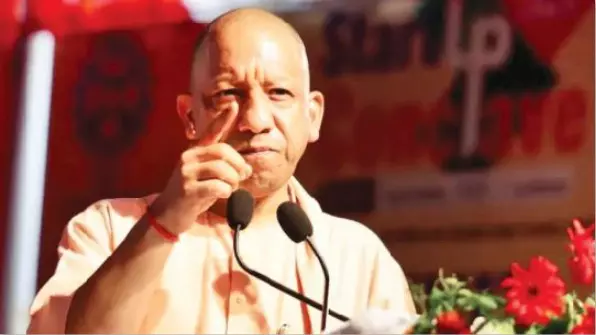Fear, Faith and Order
From lawlessness to lawful order, Uttar Pradesh’s transformation under Yogi Adityanath stands as a striking case of political will and administrative direction

Instant action for justice has become synonymous with Yogi Adityanath’s Government of Uttar Pradesh — and for good reason. Be it the mafia, the illegal builder’s lobby, or any form of unlawful activity, every wrongdoing in the state is acted upon swiftly and decisively, epitomising zero tolerance for misconduct. The result has been visible happiness among common citizens, thanks to the improved law and order situation and a renewed sense of confidence that the Yogi government will not tolerate any nuisance. To a great extent, it has successfully instilled fear among troublemakers.
Prior to the current regime, law and order in Uttar Pradesh were in disarray, with a high crime rate and significant problems faced by people — especially women. By and large, barring some aberrations here and there, the situation today is far better than in most other states of the country. This is commendable in India’s largest state by population.
A point to ponder here is: how are the sentinels, the enforcers, the keepers of the law, performing so exceedingly well in Uttar Pradesh now? Between us, we know that direction flows from the top — be it good or rotten. The police act accordingly. When the indication from the top political leadership is clear and positive, the force performs effectively. If it is otherwise, citizens suffer. That is how political alignment influences the functioning of officialdom.
Ideally, this should not be the case, as per the principles and guidelines of the All India Services regulations. Bureaucracy, being one of the independent pillars of democracy, is expected to function without prejudice or favouritism. Unfortunately, we have now become accustomed to witnessing the reverse — where the state machinery, including law enforcement, often acts in tandem with the ruling political class. The police and bureaucracy are at times used as tools to settle political rivalries rather than to uphold the rule of law and serve the public in the true spirit of governance. However, Uttar Pradesh — once notorious for such tendencies — has, to a large extent, shed that image under the Yogi Adityanath government.
Action against unlawful or illegal activities in the state is often met with what is now popularly known as the “bulldozer action.” This approach has been in the news for some time. The judiciary, at its peak of activism, has intervened in several cases — at times, without much application of jurisprudence — despite the fact that the government machinery in Uttar Pradesh usually acts with caution and within the legal framework.
Bulldozing is undertaken only after due diligence and verification of illegal encroachments on government land or constructions raised without sanctioned building plans. Such action is directed solely against lawbreakers — not otherwise.
In recent times, media outlets have highlighted de-encroachment drives in the Prime Minister’s constituency, Varanasi. Many illegal constructions in the sensitive cantonment area have been removed, much to the annoyance of affected parties who now cry hoarse, infusing sentiment into their appeals about “what will happen to them” after the bulldozing of their illegal encroachments. Infrastructural growth brings progress — and often, it comes with a pinch of salt, especially in a city like Varanasi, the oldest living city in the world. Rome, often called the oldest, has been destroyed and rebuilt several times, whereas Varanasi has never been destroyed or reconstructed. Hence, its narrow lanes and congested areas now require redevelopment.
Presently, from Dalmandi to the famous Lord Vishwanath Temple, the corridor is being widened. Authorities have determined that several thousand illegal encroachments exist along this stretch. Such encroachments, obviously, were allowed to happen over time — often through bribery, collusion, and political favouritism, as corrupt officials looked the other way. In the larger interest of the public — for growth, progress, and prosperity — infrastructural development must proceed unhindered. Many affected individuals are attempting to whip up sentiment against government action, ignoring the fact that they themselves are at fault for being on the wrong side of the law.
If respect for law disappears from people’s minds, anarchy takes hold, and civilisation itself stands threatened. Therefore, there must be a rational and healthy fear among anti-social and criminal elements that wrongdoing will inevitably invite consequence. Only then will they be compelled to remain within the bounds of legality.
Views expressed are personal. The writer is a senior IAF officer with long experience of civil administration in government in various disciplines/ministries



